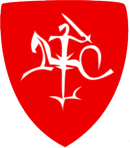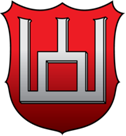 |
Nacionalistas - Tautininkas - Patriotas - Žygeivis - Laisvės karys (Kalba - Istorija - Tauta - Valstybė)"Diskusijų forumas" ir "Enciklopedija" (elektroninė virtuali duomenų bazė) |
 |
| Dabar yra 27 Bal 2024 19:46 |
 |
Nacionalistas - Tautininkas - Patriotas - Žygeivis - Laisvės karys (Kalba - Istorija - Tauta - Valstybė)"Diskusijų forumas" ir "Enciklopedija" (elektroninė virtuali duomenų bazė) |
 |
| Dabar yra 27 Bal 2024 19:46 |
|
Visos datos yra UTC + 2 valandos [ DST ] |
 
|
Puslapis 1 iš 1 |
[ 1 pranešimas ] |
|
| Autorius | Žinutė | |||||
|---|---|---|---|---|---|---|
| Žygeivis |
|
|||||
Užsiregistravo: 05 Spa 2006 01:16 Pranešimai: 27103 Miestas: Ignalina |
|
|||||
| Į viršų | ||||||
 
|
Puslapis 1 iš 1 |
[ 1 pranešimas ] |
|
Visos datos yra UTC + 2 valandos [ DST ] |
Dabar prisijungę |
Vartotojai naršantys šį forumą: Registruotų vartotojų nėra ir 1 svečias |
| Jūs negalite kurti naujų temų šiame forume Jūs negalite atsakinėti į temas šiame forume Jūs negalite redaguoti savo pranešimų šiame forume Jūs negalite trinti savo pranešimų šiame forume Jūs negalite prikabinti failų šiame forume |